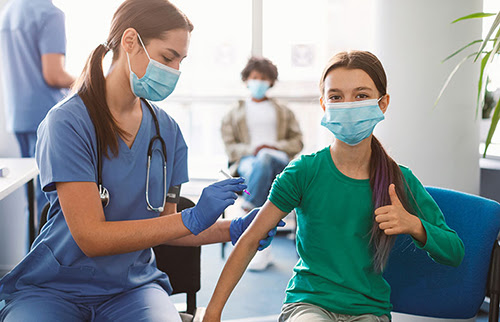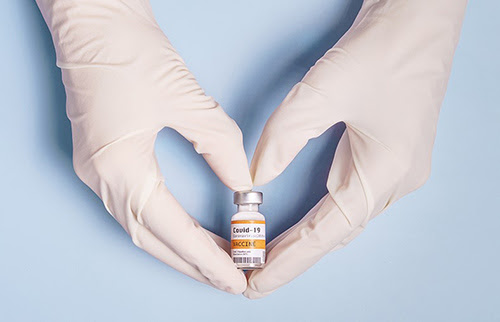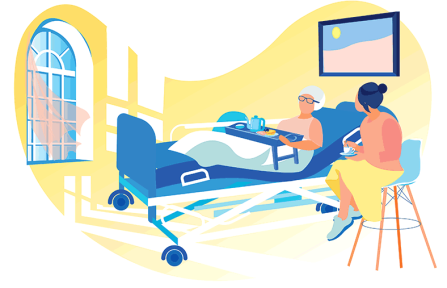The following information was provided by Dartmouth-Hitchcock Health.
| COVID-19 testing FAQ |
| I have symptoms and think I might have COVID-19. Should I get tested? If you have any of the COVID-19 symptoms, make sure you wear a tight-fitting mask and adhere to physical distancing. We also encourage you to get tested. You can use a home antigen test or schedule an appointment for a PCR test at any one of the testing locations in New Hampshire (PDF). Dartmouth-Hitchcock Health (D-HH) offers PCR tests at several locations. You can schedule COVID-19 testing at D-HH locations using myD-H. More information about home tests can be found on the CDC website. Where can I get a home antigen test? Home tests are available at most retail pharmacies and large retailers. As of January 15, most Americans can get COVID-tests at no cost through their private insurance. Depending on the type of insurance, individuals may have the COVID-19 test paid for at the time of purchase, or they will need to submit a claim to their insurance. Each household can order up to 4 free home tests from the Federal Government on the COVIDtests.gov website. I used a home test and tested positive. Should I also take a PCR test? If you have a positive result using a home test, this means that you are positive for COVID-19. You do not need to get a PCR test for confirmation. You should begin your isolation at home immediately and let your close contacts know of your positive test. What is the difference between isolation and quarantine? Isolation and quarantine guidelines continue to change. If someone tests positive for COVID-19 regardless of vaccination status, they will need to isolate in their home and stay away from other people for at least 5 days, regardless of whether they have symptoms. If someone who is not up to date with vaccinations, comes into close contact with another person who has COVID-19, they need to quarantine for at least 5 days according to the latest CDC recommendations. If an individual is up to date with their vaccinations and has contact with someone who has COVID-19, they do not need to quarantine. Detailed information from the CDC about isolation and quarantine guidelines can be found on the CDC’s COVID-19 Quarantine and Isolation web page. Learn more about isolation and quarantine guidelines for: New Hampshire (PDF)Vermont I have been exposed to someone with COVID-19, and I don’t have any symptoms. What should I do? Follow these guidelines from the CDC:If you are up to date with your COVID19 vaccines, and you do not develop any symptoms, you do not need to quarantine but you should get tested at least 5 days after you had close contact with the infected person. If your vaccines are not up to date, you need to quarantine for 5 days. If you don’t develop any symptoms, you need to get tested at least 5 days after contact. If you start to develop symptoms, get tested. I tested positive for COVID-19, and I have symptoms. How do I know when to call my doctor? Most people with COVID-19 have mild illness and can recover at home without medical care. It’s important to get a lot of rest, drink fluids, and keep track of your symptoms. You do not need to call your provider if your symptoms are mild. We provide some general guidelines for when you should seek medical care on our Testing Positive for COVID-19 web page. |
| ? |
| “Up to Date” and “Fully Vaccinated” are not the same. Learn how they are different. |
| You are up to date with your vaccines if you have received all of the recommended COVID-19 vaccines. This includes any booster dose(s) when you are eligible. You are fully vaccinated when you have received your primary series of any of the COVID-19 vaccines. For more information, refer to the Stay Up to Date with Your Vaccines web page on the CDC website. |
| ? |
| Which is the best mask to wear? |
 |
| Masks, along with vaccines, are a crucial tool in stopping the spread of COVID-19. According to the CDC, a respirator-type mask that is well-fitting, and one that you will wear consistently, will provide the best protection against COVID-19. An example of this kind of mask is the N95 or KN95. The N95 mask can filter up to 95% of particles in the air and has been used in healthcare settings even before the pandemic. There is, however, a greater chance of a KN95 mask being counterfeit and not meeting standards, so be careful where you purchase your masks. Read more about CDC recommendations for masks on their Types of Masks and Respirators web page. |
| ? |
| An extra primary dose of vaccine offers greater protection for some immunocompromised individuals |
| Some moderately to severely immunocompromised people will need an additional primary shot before they get a booster shot. For the Pfizer and Moderna vaccines, an individual would receive an additional primary shot 28 days after their second shot for a total of 3 shots to complete their primary vaccination series. A booster vaccine would be given 5 months after the third shot. Please speak with your provider if you are immunocompromised and have questions about getting an additional primary dose. The CDC has more information on their COVID-19 Vaccines for Moderately or Severely Immunocompromised People web page. |
| ? |
| Booster shot age and timing updates |
 |
| The U.S. Food and Drug Administration (FDA) and the Centers for Disease Control (CDC) recommends booster shots for adolescents ages 12 and older. Only the Pfizer vaccine is authorized for ages 12 to 17. The FDA has also decreased the time when an individual may get the booster dose after their initial series of the Pfizer or Moderna vaccine from 6 months to 5 months. Read more about booster shots and vaccine clinics on our Booster Shots web page. |
| ? |
| Getting your COVID-19 vaccine and booster shot |
 |
| There are many opportunities for you to get your booster shot, and we encourage everyone to do so as soon as possible! D-HH patients can get their primary series of vaccines and booster shots at several D-HH locations: Appointments are required. You can schedule your appointment by using your myD-H account.Visit our website or log into your myD-H account to see available dates and locations for upcoming vaccination clinics. Upper Valley community walk-in clinics (no appointment needed)Throughout January, on Tuesdays and Thursdays from 11 am to 6 pm: First and second doses and boosters will be available. Primary vaccine series (first and second shots) will be available for ages 5 and up. Location – Former JC Penny site, West Lebanon, NH. Sponsored by Dartmouth-Hitchcock (D-H) and the Regional Public Health Network in collaboration with New Hampshire Department of Health and Human Services (NH DHHS) and the Lebanon and Hanover Fire Departments. State resources for vaccinesThe State of New Hampshire has many options for booster shots, including a mobile vaccine van: The NH Mobile Vaccine Van has appointments for anyone to receive vaccines or boosters. To see the current van schedule and locations, visit the New Hampshire vaccine website and click the “Find the Van” image. Organizations can also request the van to come to your location by clicking on “Book the Van.” The State of New Hampshire also has many sites throughout the state where you can get primary vaccines and booster shots. |
| ? |
| Visitor policy updates |
 |
| Our visitor policy changes frequently. Please be sure to view our latest policy before coming to a D-HH facility. Note that restrictions may vary at other D-HH locations based on levels of community spread and our location websites have details specific for each location. For outpatient appointments at D-H locations in the greater Concord, Manchester and Nashua areas, please visit our Dartmouth-Hitchcock Southern NH Visitor Policies web page. |
| ? |
